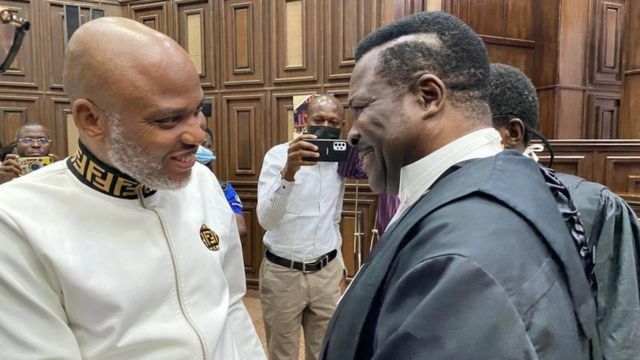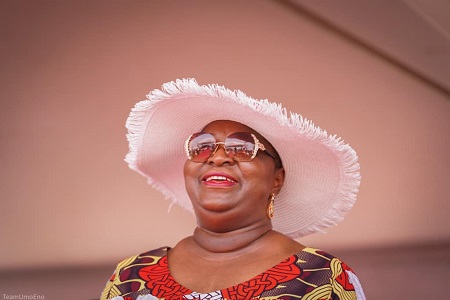Nnamdi Kanu, the arrested leader of the Indigenous People of Biafra, IPOB, had been charged with terrorism by the Federal Government. On Thursday, the Court of Appeal in Abuja struck out the indictment.
It discharged and acquitted him of the seven-count allegation against him pending before the Federal High Court in Abuja.
The appeal court, in a judgment by a three-member panel led by Justice Jummai Hanatu, found that the FG flagrantly breached the law when it forcibly returned Kanu to Nigeria for the continuation of his trial from Kenya.
Let the National Award Motivate You to Improve Your Service, Abia APC Tells Emenike, Onyejeocha
It determined that such extraordinary rendition, without respect to due process of the law, was a gross violation of all international agreements, protocols, and guidelines signed by Nigeria, as well as a violation of the Appellant’s fundamental human rights.
The appellate court stated that FG failed to counter the allegation that the IPOB leader was in Kenya and was abducted and returned without an extradition hearing.
It ruled that FG’s “ominously silent on the issue” which it described as very pivotal in determining whether the trial court would still have the jurisdiction to continue with the criminal proceeding before it.
“In law, that is a costly failure and such failure is an admittance by the Respondent.
“Where a party fails to controvert a deposition by an opponent, the issue not contested is deemed conceded”, the court held, adding that the onus was on FG to prove the legality of the Appellant’s arrest and return from Kenya.
In addition, the court stated that Nigeria is a signatory to the OAU Convention, which it ratified on April 28, 2022, as well as the Charter of Human and Peoples Rights, which it claimed outlined how a wanted individual might be moved from one country to another.
The court ruled that extradition requests must be made in writing and include a list of the crimes for which the individual is wanted.
The appellate court determined that FG’s conduct tainted the entire case it launched against Kanu and constituted an “abuse of criminal prosecution in general.”
“The court will never shy away from calling the Executive to order when it tilts towards Executive recklessness”, the Appellate court held, even as it accused FG of engaging in “serious abuse of power”.
Nonetheless, the appellate court ruled that it would be prejudicial to give a ruling on IPOB’s proscription while the subject is still on appeal.
It ruled that the restraining order issued by the lower court would remain in effect until it is vacated.

















